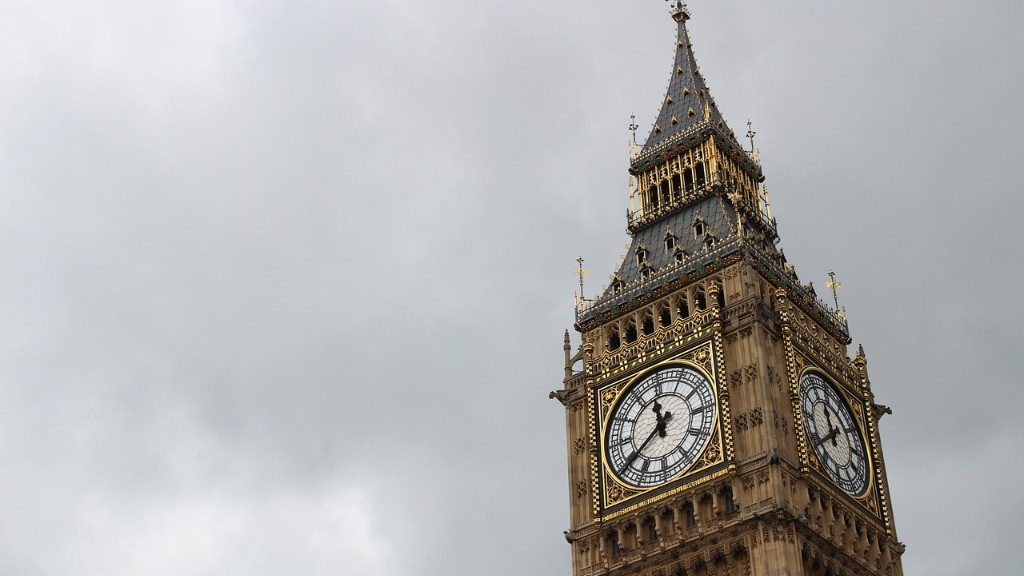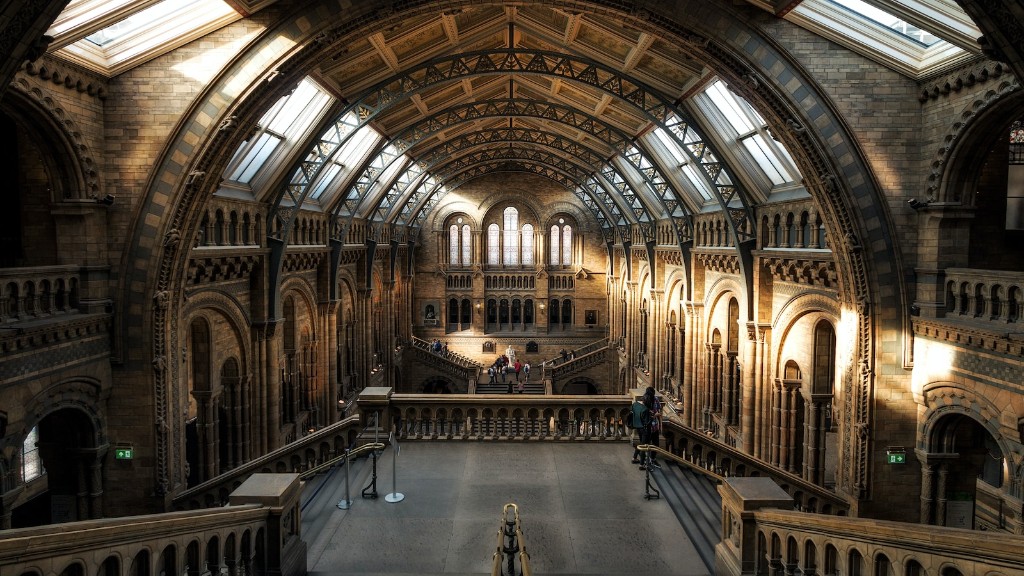The Significance of the Founding Fathers
The Founding Fathers of the United States were the group of extraordinary individuals responsible for drafting the Declaration of Independence and the United States Constitution. Their ideas about democracy, individual liberty, and government shaped the nation’s civic and political landscape for centuries to come, making them some of the most influential men in early American history. But did the Founding Fathers come from Great Britain?
The importance of the Founding Fathers in American history is hard to overstate. The Declaration was a remarkably powerful document that declared the Colonists’ freedom from Great Britain’s rule, while the Constitution established the principles upon which the United States was founded. Many of the ideas and principles expressed in the Declaration and Constitution still resonate today.
The influence of the Founding Fathers was so prominent that many of their words and works have become immortalized in popular culture, from Thomas Jefferson’s oft-cited “all men are created equal” quote from the Declaration to George Washington’s famous crossing of the Delaware.
So, were the Founding Fathers from Great Britain? The short answer is no. Although the bulk of the American population during the time of the Revolution was British, the Founding Fathers came from varied backgrounds, representing multiple colonies and states throughout the colonies.
Among the influential figures who signed the Declaration of Independence were Thomas Jefferson, John Adams, Benjamin Franklin, and George Washington. Despite the fact that all of these men were heavily influenced by British culture and philosophy, none of them were born in Great Britain. Jefferson was born in Virginia, Adams in Massachusetts, Franklin in Pennsylvania, and Washington in Virginia.
What’s more, the Founding Fathers belonged to a diverse set of socioeconomic backgrounds, religions, and nationalities. Though most of them were of British descent, they also came from Irish, German, and French backgrounds. They were also a mix of wealthy plantation owners, small farmers, and tradesmen. Even the religious affiliations of the Founding Fathers were varied, from Anglican to Quaker.
The Impact of British Influence
Despite the fact that the Founding Fathers were not from Great Britain, the influence of British culture and ideals played an important role in the formation of the United States. For example, the colonists were inspired by the ideals of the British Whig tradition, which emphasized the value of Parliamentary government and the rights of citizens.
The Founding Fathers drew heavily from the radical Whig ideology, including the ideas of John Locke. Locke’s ideas about government as a social contract were widely discussed by the Founding Fathers, and ultimately enshrined in the Declaration of Independence and the Constitution.
The influence of British law and common law on the new American legal system was also significant. Many of the laws the Founding Fathers enacted copied English common law. In addition, English Parliamentary law inspired the system of checks and balances that was implemented in the Constitution.
English culture also inspired the language of the Founding Fathers. Thomas Jefferson included many British phrases and expressions in his writing, demonstrating how language was shared and exchanged between America and England.
Aside from their legal and linguistic influences, the British gave the Founding Fathers ideological ammunition against tyrannical rule. From Whig theorists such as Thomas Paine to lawyer-philosophers such as John Locke, many of the framers of the Declaration of Independence read and discussed British writers whose ideas ultimately became the foundations of the American Revolution.
The Legacy of the Founding Fathers
Although the Founding Fathers did not come from Great Britain, the country’s influence on the formation of the United States was undeniable. The Founding Fathers thought widely and deeply about the ideals of democracy before putting their ideas into practice in the American Revolution.
Furthermore, the Founding Fathers’ commitment to principles such as individual liberty and representative government inspire Americans to this day. The Founding Fathers’ legacy can be seen in everything from the nation’s legal system to its art and literature, and their influence on American society remains powerful and long-lasting.
The Constitutional Convention of 1787
The Constitutional Convention of 1787 was a revolutionary event in American history attended by 56 delegates from 12 colonies. These delegates, who soon became known as the Founding Fathers, discussed and debated the basis for a new government, eventually drafting the Constitution of the United States and establishing the foundation of the American form of government.
The most influential figure at the Constitutional Convention was James Madison, known as the “Father of the Constitution.” His Virginia Plan proposed a bicameral legislature composed of a House of Representatives and a Senate as well as an executive branch. Ultimately, this model formed the basis of the Constitution.
Another key figure at the Convention was George Washington, who served as the leader of the Convention and the political leader of the new nation following the Revolution. His leadership and wisdom were instrumental in formulating the compromises that formed the basis of the Constitution.
Thomas Jefferson also played an important role at the Convention. Though he was not present during the actual proceedings, Jefferson wrote and distributed his notes on the Constitution to the delegates to help inform their deliberations. His proposals helped shape the formation of the Bill of Rights.
The Impact of the Constitution
The Constitution of the United States, drafted by the Founding Fathers during the Constitutional Convention of 1787, established the framework for the federal government. The document enumerates the structure of the government, the rights of citizens, and the powers of the executive, legislative, and judicial branches.
The Constitution has had a profound effect on American law and society. In addition to formalizing the basic freedoms outlined in the Declaration of Independence, it provides citizens with the right to privacy, freedom of speech, and the right to peaceful assembly. In addition, it established important principles such as due process, which protects citizens from being unfairly tried or punished by the government.
The Constitution is also a living document, meaning that it can be amended to meet the changing needs of society. In fact, there have been 40 amendments since the document was signed in 1787, such as the 19th Amendment which gave women the right to vote.
The Constitution has become an enduring symbol of the strength and resilience of the American people. Even in a nation as diverse as the United States, all citizens can agree the Constitution stands as an essential foundation of the nation’s laws and values.
The Founding Fathers’ Impact on Today’s Society
The Founding Fathers’ legacy continues to be felt throughout modern day society. Though they did not come from Great Britain, their contributions to the formation of the United States helped create the vibrant, dynamic nation that we know today.
Their philosophy of individual liberty, limited government, and democratic representation has been embraced by generations of Americans both before and after the Founding Fathers. From advocates of economic justice to the architects of the civil rights movement, the ideals of the Founding Fathers continue to resonate in American life.
In addition, the Founding Fathers’ legacy can be seen in everything from the nation’s law to its art and literature. Their words and ideas continue to inspire Americans of all political persuasions, and their influence on the nation’s civic and political landscape is testament to the enduring power of their ideology.
Though the Founding Fathers did not come from Great Britain, their courage, creativity, and vision shaped the nation in remarkable ways. It is thanks to their wisdom and dedication that the United States is a leading democracy and a beacon of liberty and justice today.
The Education Legacy of the Founding Fathers
Education was a major goal of the Founding Fathers, both for its own sake and in service of the nation’s ongoing success in democracy and individual freedom. To help ensure the nation’s future success, the Founding Fathers sought to foster a widespread educational system, based on instruction in the liberal arts, technology, and other disciplines, to equip citizens with the civic, entrepreneurial, and practical skills they needed to thrive as independent citizens.
The Founding Fathers put their words into action by supporting public education, thereby creating a lasting legacy for future generations of citizens. The most prominent example of this was Thomas Jefferson’s foundation of the University of Virginia in 1819, which set the standard for public universities in terms of academic excellence and curricular focus. He argued that public universities should focus on practical educational subjects such as law, history, ethics, and science.
In addition, many of the Founding Fathers looked to Europe for guidance in creating the United States’ educational system. Benjamin Franklin, for instance, toured Europe and spoke with many noted scholars in order to learn the approach to schooling in Europe. He incorporated his European education into the American education system, exporting ideas on teaching, training young people, and developing educational requirements for teachers.
The Founding Fathers’ legacy has also been felt in the way American schools teach children. Many schools now teach based on the ideals of the Founding Fathers, grounded in the idea of individual rights and freedoms. This legacy can be seen in the curricula, which puts an emphasis on developing critical thinking skills, creativity, and independence.
The Power of Individual Freedom
The Founding Fathers were adamant defenders of individual rights and freedoms. Their impact on America’s political, social, and cultural development cannot be overstated, and their commitment to individual liberty has served as an inspiration for generations of Americans.
For example, the Founding Fathers





